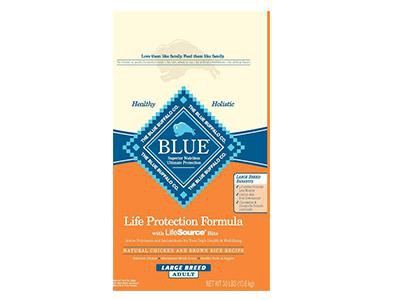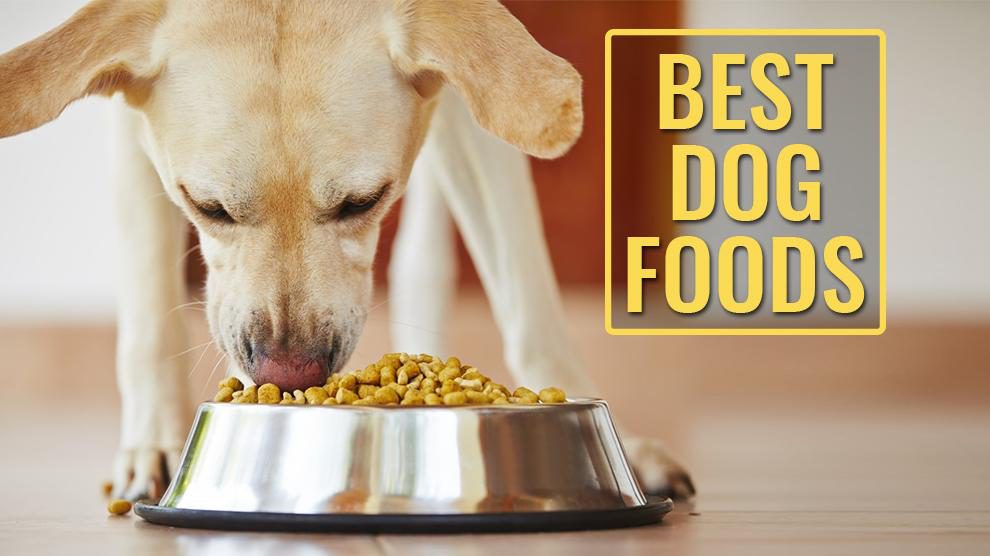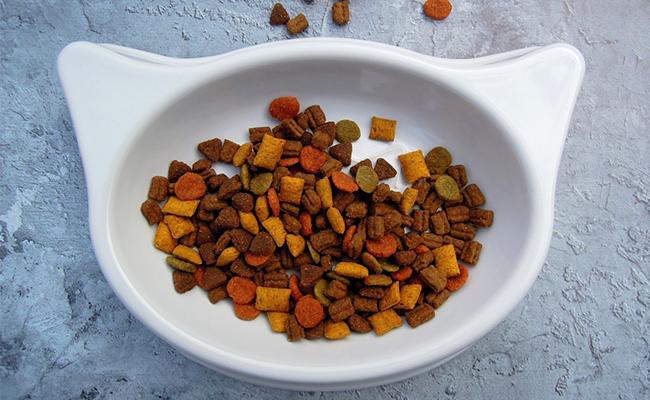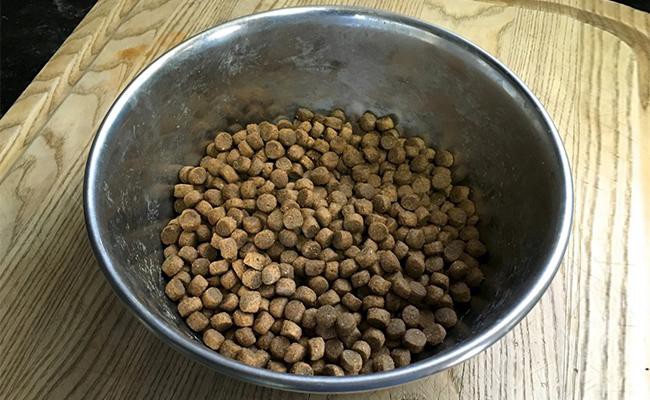Dog Pregnancy Calculator And Timeline
Different dogs will have distinct and unique needs, and there cannot be a universal dog food that satisfies every canine breed.
With regard to food, you can discuss this matter with your vet. After taking your vet’s recommendation, you decide whether to switch your dog’s diet or not.
Let’s learn more about the best dog foods for puppies, small dog breeds, large dog breeds and much more.
How To Pick The Best Dog Food For Puppies?
Puppy owners are always keen to know: What is the best puppy food?
Will “One Size Fits All” dog food work for all puppies?
No, dog lovers know that a puppy’s health is based on the food it eats. The nutritious kibble stimulates your puppy’s mind and body, helping her gain good vision, shiny coat, lean muscles, and a healthy brain.
Important things to consider before picking the right and best dog food for puppies
- The most important factor in feeding your dog: Watch your dog, not his dish. Your puppy’s body condition should decide portion sizes and not the amount left or eaten.
- Nutritional requirements vary between small-sized dogs and large-sized dogs. Portion sizes should be provided solely on body type and individual metabolism.
- Do not panic if your puppy picks at food or skips a meal. This is not a bad sign unless and otherwise your puppy is diagnosed with
- It actually means your puppy is waiting to eliminate the food that you have served her too much.
- In this case, you should ideally reduce the quantity of food served.
Small Dog Puppy Vs. Large Dog Puppy
Let’s first know the difference between small-sized puppies and large size puppies.
| Small Dog Breeds | Large Dog Breeds |
|---|---|
| Size- Not more than 22 lbs at adulthood | Not less than 50 lbs at adulthood |
| Reaches maturity- 8-10 months | 15 months |
| Yorkshire Terrier, Shih Tzu, Dachshund, Chihuahua | German Shepherd, Bulldog, Labrador Retriever |
The range and uniqueness of sizes amongst canine breeds are far greater and diverse than that of other animals.
Small breed puppies and large breed puppies have different nutritional requirements.
According to vets, there are some common rules for feeding puppies, but different growth rates decide the amount of food served.
Best Dog Food For Small Breed Puppies
Before we get to the list of food for small breed puppies, let’s understand more about small dog breeds.
- The general understanding that small dog breeds require a small amount of maintenance and little food to eat is a dangerous misjudgment.
- Toy breeds or teacup puppies require proper and nutritious feeding to prevent hypoglycemia.
- Small dogs are susceptible to this condition due to low body fat and sugar reserves.
- High metabolic rates also cause hypoglycemia in small dogs.
What food is suitable for a small dog puppy?
Small-dog puppies need calorie-dense rich food, anywhere between four-six times daily. Kindly watch them for signs of hypoglycemia.
The Signs include Seizures, Muscle Tremors, Lethargy, and Weakness
Recommended Best Dog Food
1. Farmina N&D Small and Medium Breed Puppy
- Ratings: 5/5
- Best for Small breed puppies
- Profile: All Life Stages
- Important 5 ingredients- Dehydrated egg product, chicken fat, potato, dehydrated chicken, deboned chicken
- Product Analysis
- Carbohydrates-22%
- Fat level-24%
- Dry matter protein-46%
2. Earthborn Holistic Primitive Natural Grain Free
- Ratings: 5/5
- Suitable for: All Sizes
- Profile: All Life Stages
- Important 5 ingredients- Pea peach, dried egg, peas, chicken meal, turkey meal
- Product Analysis
- Carbohydrates-22%
- Fat level-22%
- Dry matter protein-42%
3. Wellness Core Grain-Free Puppy Food
- Ratings: 5/5
- Suitable for: All Sizes
- Profile: Growth
- Important 5 ingredients- Herring, turkey broth, chicken, chicken liver, turkey
- Product Analysis
- Carbohydrates-22%
- Fat level-22%
- Dry matter protein-50%
Best Dog Food for Large Breed Puppies
Feeding the right kind of food can reduce the risk of :
- Developmental orthopedic disease (DOD)
- Canine hip dysplasia (CHD)
- Osteochondrosis (OCD)
- Elbow dysplasia
Recommended dog food
1. Annamaet Encore 25% Dry Dog Food
- Ratings: 5/5
- Suitable for: Large dog puppies
- Profile: Growth
- Important 5 ingredients- Omega 3 fatty acids, chelated mineral, chicken meal, brown rice
2. Diamond Naturals Large Breed Puppy
- Ratings: 4.9/5
- Suitable for: Large dog puppies
- Profile: Growth
- Important 5 ingredients- Lamb, lamb meal, ground white, chicken fat
Best Dog Foods For Small Dog Breeds
Choosing the right food for small dog breeds is quite tricky. Small dog breeds require extra calories-per-lb than large dogs. Small dogs also need smaller kibbles.
The main concern is obesity. Obese dogs are susceptible to a range of health problems.
Obesity can cause Cranial cruciate ligament injury, Kidney disease, Cancer, Heart, and respiratory disease, Type 2 diabetes, High blood pressure, and Osteoarthritis
How Are Small Dog Breeds Different?
- Small dog breeds need higher energy needs per lb than large dog breeds.
- These dogs also need more amount of calories.
- Known to have a longer lifespan, small breed dogs need more supply of nutrients for long and healthy life.
Important ingredients you should look for in a small dog breed food
- Most of the energy should come from meat protein.
- Fat is necessary for healthy and shiny coats. Omega-3 and Omega-6 fatty acids are some of the important nutrients your dog requires.
- Moderate fiber diets can reduce the problems of hypoglycemia.
Top 3 Best Small Breed Dog Food
1. Wellness CORE Natural Dry Grain Free Small Breed Dog Food
Ratings – 4.7/5
Wellness CORE mainly consists of essential nutrients without any fillers and grains. Best for those looking for no grains and more meat dog food.
Key Features
- Balanced and complete diet delivers top quality
- Contains antioxidants, glucosamine, botanicals, and probiotics
- Chondroitin helps to maintain joint and bone health
- Omega Fatty Acids promotes a healthy coat and skin
2. Blue Buffalo Life Protection Formula

Ratings – 4.5/5
Blue Buffalo always consists of top quality meat as its first ingredient. Other than deboned chicken it consists of fruit, veggies, and wholesome whole grains.
Key Features
- Deboned chicken is given more importance
- Includes no preservatives or artificial colors
- Uses whole grains
3. NUTRO Small Breed Dry Dog Food
Ratings – 4.5/5
NUTRO provides natural fiber and aids in healthy digestion. These dog formulas are specially crafted for small dog breeds.
Key features
- A proper blend of antioxidants
- Perfect kibble size
- Made with natural chicken
Best Dog Food For Large Dog Breeds
Buying a large breed canine comes with additional responsibilities including food. Feeding a well-formulated best quality diet can prevent disease and ensure that your dog is healthy.
Nutrition Requirements For Large Breed Dogs
- Large dogs need a different amount of minerals and vitamins for a healthy future. Commercial dog foods contain fruits, vegetables, grains, and meats to meet nutritional
- The best quality dog food should include minerals, vitamins, carbohydrates, fiber, and protein.
- These dogs require thorough monitoring for symptoms of bloat, obesity, and orthopedic disease.
- Kindly contact your vet if you are ready to provide a home-based diet. Your vet will help you balance all the nutrients in the right proportion.
- A dog weighing around 1 lb can quickly grow into a 145 lbs dog within a span of 18 months.
Growing too fast is not at all healthy for these large dog breeds. Abnormal growth can result in DOD or developmental orthopedic disease. This includes a number of conditions:
- Elbow dysplasia
- Hip dysplasia
- Panosteitis
- Retained ulnar cartilage core
- Osteochondrosis
- Hypertrophic osteodystrophy
How To Feed Large Breed Dogs?
Reducing the intake of vitamin D, phosphorus, and calcium helps remove the fear of DOD in large dog breed puppies.
Measuring the intake of calories will also help to reduce growth rates.
You can feed your dog several small quantities of meals and monitor his progress.
The food requirements of a large breed dog will differ from large breed puppy food. Your local vet will be keen to share observations and insights about the most suitable diet for your large breed dog.
How Much Can A Large Breed Dog Eat?
There is no definite answer to this question. The calorie intake can vary from one dog to another. The most simple and effective method is you can talk to your vet regarding your dog’s weight.
Vets will decide the right amount of food on criteria called “body condition score.”
What Is The Best Food For Large Breed Dogs?
There is no one specific brand that can meet all the requirements of a large dog. Discuss with your vet and you finalize a lifelong nutrition plan.
Best Wet Dog Food
Are you aware of every ingredient mentioned on the food packet?
Before you decide to feed your dog with wet food, consider these factors-
- Behavioral needs
- Age
- Health
Pros of feeding your dog with wet food
The main advantage of these wet foods include-
- Feeling of fullness- The presence of high moisture content makes a dog feel satisfied and full.
- Eating wet food can help obese dogs maintain a healthy weight.
- Smell: Senior dogs may lose their sense of smell as they grow older. Wet foods offer a good sense of flavor and scent that can increase the appetite.
- Aids dogs with chewing problems- Dogs can suffer from chewing problems due to several reasons including-
- Smallmouth size
- Misaligned jaws
- Loss of teeth
Eating canned food will put less stress on their jaws and thereby this can help them maintain a healthy weight.
Increased water content- Canned food is ideal to prevent hydration. If your dog is a stubborn eater, then you live in very hot and humid conditions, canned foods can keep your dog hydrated.
Cons of feeding your dog with wet food
- Some pets can make an unnecessary mess while eating canned food.
- Dogs with dental problems should eat wet foods with caution
- Wet foods need to be refrigerated once the pack has been cut open.
- Wet dog foods are quite expensive
The nutritional content of wet foods
- Higher amounts of fat and protein
- Animal derivatives, meat meal, and meat will have more prominence
- The presence of fats and proteins in wet food enhances the growth of hair, skin, and muscles
- No or very little cereal in a canned food
- Very fewer preservatives or no preservatives at all
A mixture of both dry and wet food
The best option is to serve your dog an ideal combination of both dry and wet food. Talk to your vet and decide the best possible dog food diet.
Our Suggestion
Canned foods are much more superior to kibble. These foods contain more amount of meat protein. They contain a lesser amount of carbohydrates.
Canned foods also contain lesser or no synthetic preservatives.
Best Dry Dog Food
Take a look at both the merits and demerits of feeding your dog with dry food and decide for yourself.
The Advantage Of Dry Dog Food
- Easy to use- Dry foods are simple to use in different puzzle toys. By this way, you can keep your dog fully occupied.
- Keeps the teeth clean- Kibbles can remove tartar buildup, stain, and plaque.
- Less expensive- Dry foods are much cheaper compared to canned or wet foods.
- Cost effective- It is easy to store them in bulk and use them as and when necessary.
- Convenience- Fixed portions of dry food or kibble can be kept in the open since the risk of getting spoiled is very less.
- Ideal types and sizes- Dry foods come in different types and sizes, making it easy to feed.
The Disadvantage Of Dry Dog Foods
- Dry foods do not provide ample moisture as wet or canned foods.
- An aged animal may require more water content to prevent dehydration in hot, dry climates.
- Dry foods contain lesser amounts of protein compared to wet foods.
How To Decide Between Wet Food And Dry Food?
- If you find your pet grazing throughout the day, dry food looks more suitable.
- For fussy eaters, wet food is more convenient
- Senior dogs may require semi-moist or moist food
Consult your vet
- Your vet knows better. Kindly call your vet and then plan accordingly.
- The most vital tip is to choose a dog food that is completely balanced.
Best Grain Free Dog Food
Like any newborn baby, pets also require top quality food, care, and nutrition. Does grain-free dog food provide all the nutrients?
Why do many vets recommend grain-free dog food?
What Is Considered The Best Grain-free Dog Food?
The best grain-free food is the one that contains zero grains, minimum levels of fat, and numerous proteins. Grain-free diet and protein-based diet including plant-based protein do well for dogs with the digestive system.
This diet keeps your dog totally full and it also reduces dog food allergies.
A simple way to choose a grain-free dog food:
You can ideally choose between dry and wet grain-free dog foods. Pay more attention to these details.
- Fat – Fish remains as one of the main sources of fats.
- Real meat ingredients – Discard food items that contain meat by-products and not real meat pieces.
- The inclusion of veggies and fruits – Fruits and vegetables can provide micronutrients like trace elements and minerals.
- Protein plays a major role – The first ingredient must be protein and not a carbohydrate.
You should examine and read the contents of the product for various reasons. Some companies may include scientifically-proven antioxidants and some may incorporate probiotics.
Why Certain Grain-free Foods Are Much Better Than The Rest?
The most common ingredient mainly used to substitute cereal grains, rice, and corn in traditional food include:
- Soybeans, lentils, chickpeas, peas or any lentils
- Potatoes (sweet or white)
Difference Between Gluten-Free Diet And Grain-Free Diet
Grain-free dogs products are free of grains. Gluten-free dog food may not include grain. Gluten is present in rye, barley, and wheat.
Do All Dogs Require A Grain-Free Diet?
No, all dog breeds do not need a grain-free diet. These diets seldom help in metabolization. Most pet owners believe that gluten or grain-free diets are best for dogs having food allergies.
As per reports, corn and grains are not the most popular allergens. Corns are the least allergen causing ingredient.
Some of the signs associated with food allergies include
- “Hot Spots”
- Scabs and sore
- Signs of skin inflammation
- Bald patches
- Incredible hair loss
- Itchiness
A food trail with a grain-free product will determine whether the food is suitable or not.
Do All Dogs Require A Gluten-free Diet?
Celiac disease is quite uncommon in canines. This indicates that not all dog breeds require this gluten-free diet. Irish Setters have an intolerance towards gluten and this has been reported only in England.
These dogs can enjoy a gluten-free diet.
Recommended Grain-free dog foods should include
- Minimum carbohydrate content
- Suitable fat-protein ratio
- Meat content
- No common animal fat
- Without high-risk preservatives
- No unknown meat ingredients
- Lack of cancer-causing preservatives




















